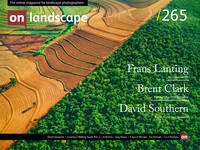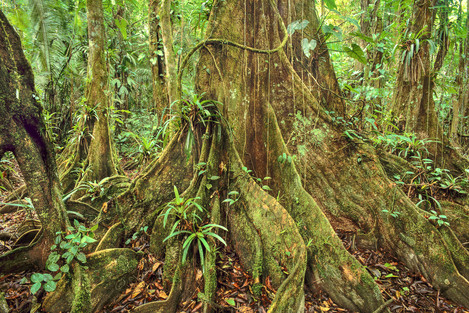In conversation

Frans Lanting
Frans Lanting has been hailed as one of the great photographers of our time. His influential work appears in books, magazines, and exhibitions around the world and has been commissioned frequently by National Geographic, where he has served as a Photographer in Residence.
His books have received awards and acclaim: “No photographer turns animals into art more completely than Frans Lanting,” writes The New Yorker. Lanting has received numerous awards for his work as a photographer and conservationist, including top honorus from World Press Photo, the Sierra Club’s Ansel Adams Award, the title of BBC Wildlife Photographer of the Year, and Sweden’s Lennart Nilsson Award. Prince Bernhard of the Netherlands inducted him as a Knight in the Royal Order of the Golden Ark, that country’s highest conservation honour.

Tim Parkin
Amateur Photographer who plays with big cameras and film when in between digital photographs.
Ever since seeing Frans' work in the Wildlife Photographer of the Year archive and learning about his background in environmental economics, I have wanted to learn more about how his work has developed and how his approach is informed by his original career choice. I was delighted to have the opportunity recently when a reader chose one of Frans' images as an Endframe (Water Lilies - Botswana) and I thoroughly enjoyed our conversation. Seeing how a predominantly wildlife photographer approaches the landscape was also interesting i.e. how the idea of the separation of subject and context that is so important in wildlife photography is applied to just the landscape.
Tim Parkin: Your original direction in life was as an environmental scientist in the 1970s, and you worked in Nature Capital/Ecosystem Services (working with nature to provide what humans need and enhance the quality of life). How did you transition from this to photography, and was this background a major influence in your future work?
Frans Lanting: I have a background in environmental economics, and in the 1970s, I studied to become an environmental economist. And my interest was to reconcile the sciences of ecology and economics, which was a novelty at the time. Quantifying the value of nature still is... I won't say a novelty anymore, but it's still not mainstream. I was keen to contribute to that discipline. And then, life took a different direction, and I decided to become a photographer. I've always been interested in nature, but the idea that you could actually make a living from photography focused on the natural world, that was pretty preposterous. But in the United States, the profession was more evolved than it was in Europe. And I'd come to California to do research in this environmental economics profession, and that is where I became familiar with the work of the West Coast Photographers.
Of course, that included people that we were very familiar with in Europe - Ansel Adams and Edward Weston, etc., but there were quite a few others who were more activist-oriented. Edward Weston was never an activist. He was a fine art photographer. Ansel was a fine art photographer, but he was very much an activist. He played a big role in the Sierra Club and was quite involved in influencing governments, and through clever use of his work, he made quite a difference. And so did Philip Hyde, who is not nearly as familiar to Europeans as Ansel and Edward were. But Philip actually went even further with his commitment to conservation. And there were a number of others. That combination of artistry and activism really appealed to me because in Europe, that simply didn't exist. Nature photography as a whole was really underdeveloped.
And in the UK, there was Eric Hosking, who was a bird photographer and a wildlife photographer. To him, landscape was something on his periphery. And there were a number of landscape photographers, but oddly enough, I cannot recall a single photographer who was an equivalent to Ansel and Philip Hyde. And the same thing in the Netherlands or in Germany.
It's a bit of a disconnect because, especially in the Netherlands, in the '60s and in the '70s, there was definitely a new current towards environmental activism that grew out of traditional nature conservation and nature appreciation, but photographers never made that connection explicitly.
So, in the US, I found a different connection, and scientists play a role in it. And I thought, well, this really appeals to me, and let's give it a try. Oddly enough, it worked, and I moved into wildlife photography. I feel very passionate about animals and what I can do with them, how I can relate to them and vice versa. I started telling stories with my camera, which was another niche that was not very well developed. Natural history is pretty static in those days.
And there was a need and a hunger for stories about the natural world that drew connections with human society, and that became my niche. And it still is, in a way. My fundamental philosophy hasn't changed, but the way I go about doing things, that has changed, of course, both in terms of how I capture images and what I do with them, the kinds of stories I tell and how I approach projects and so on and so on.
I didn't really start practising photography until I was in my mid-20s, and it was on my own. Yes, there were very few role models. There were a couple in the Netherlands, and I sought them out, and I learned some things about the craft of photography. But I pretty much did things on my own, and through making mistakes and trial and error, I evolved a style that made up for my lack of technical understanding. I also borrowed inspiration from photographers outside the field of nature photography.


